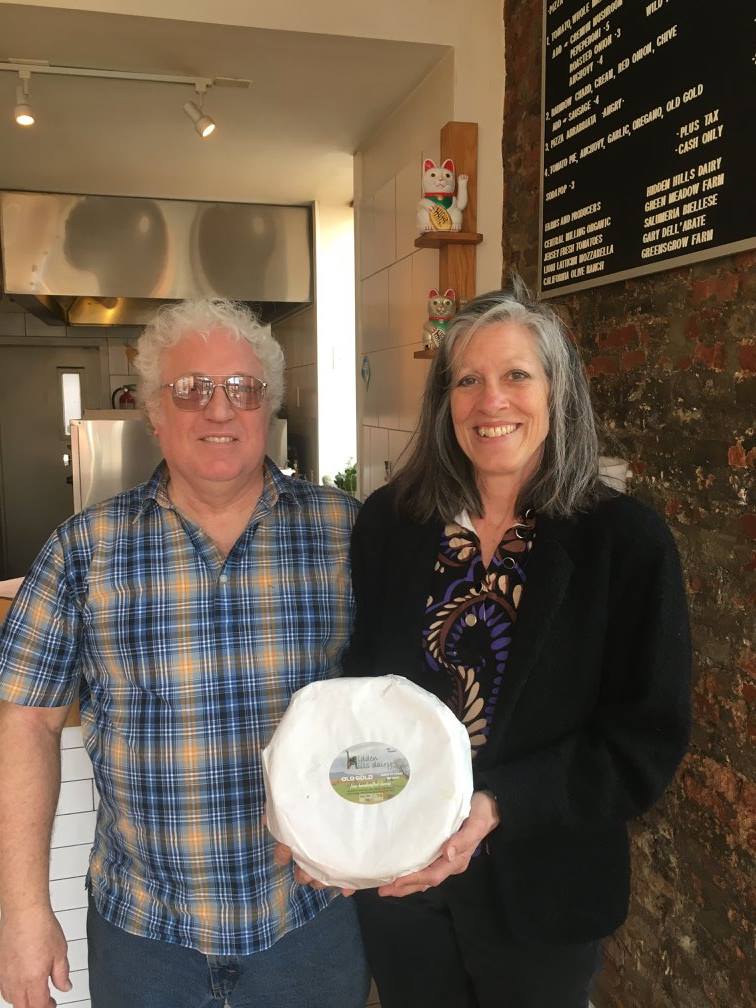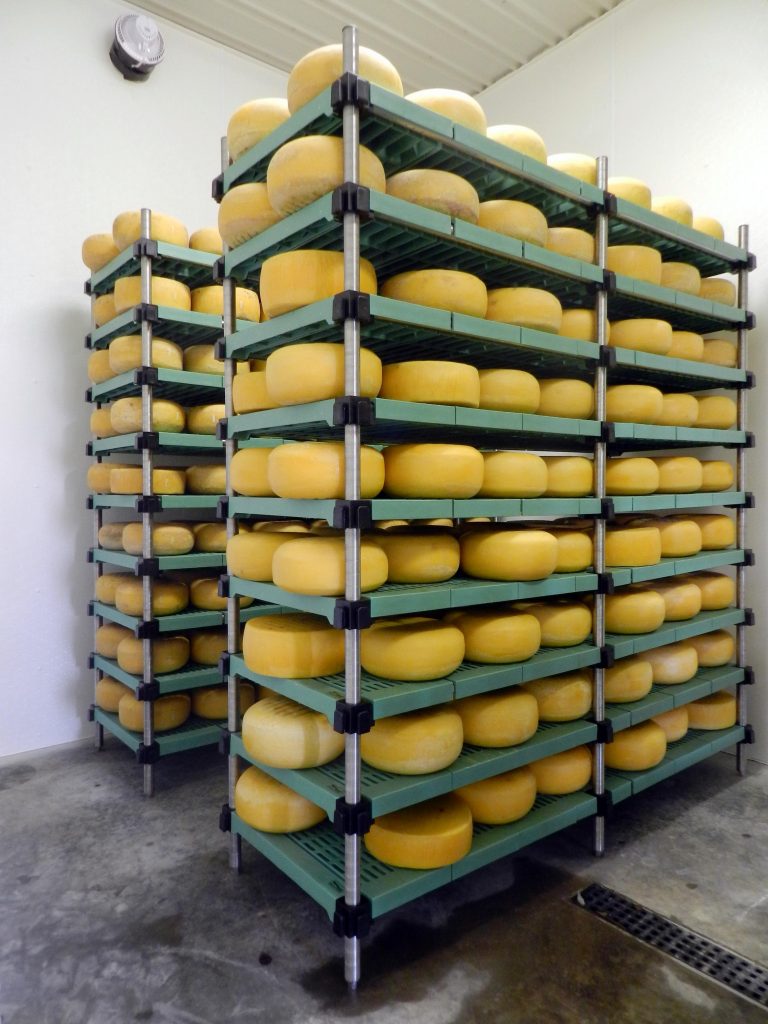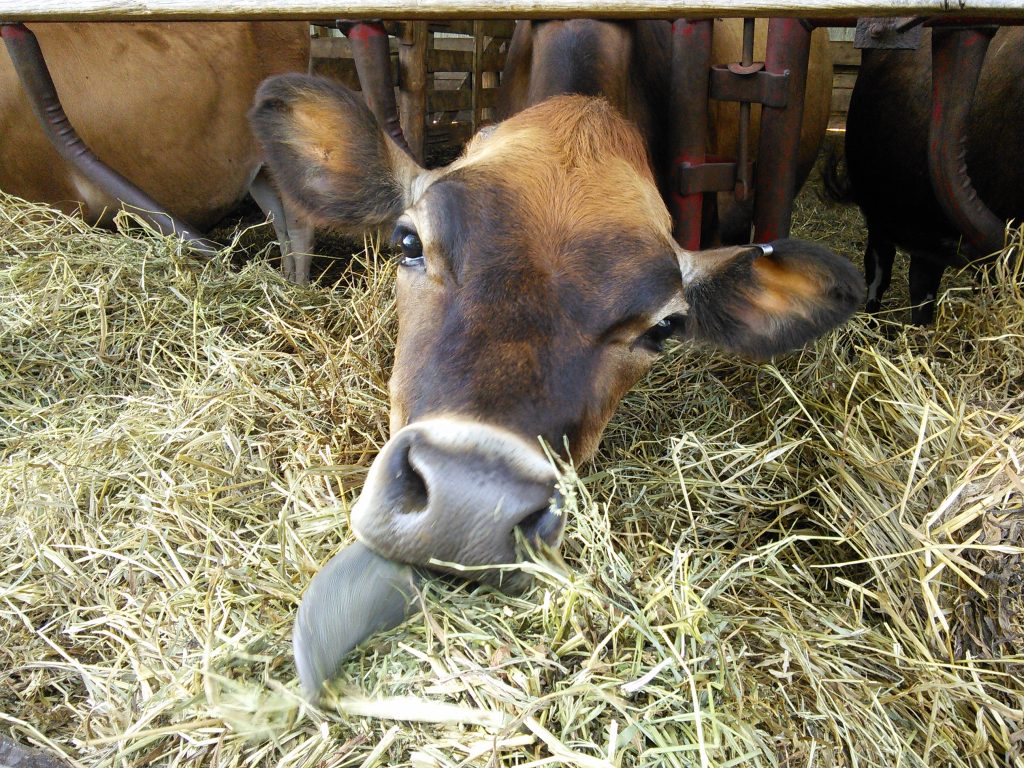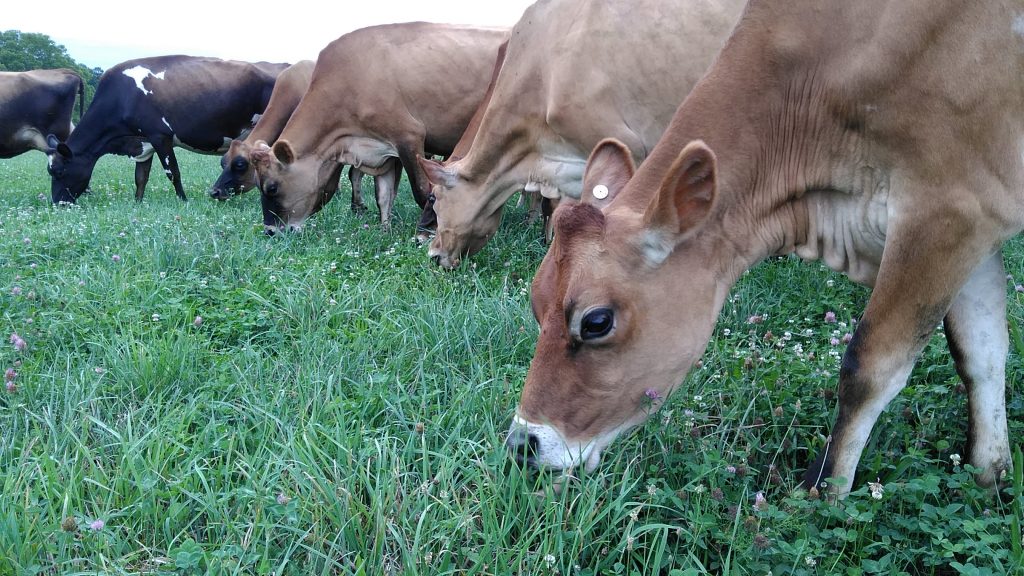“Why isn’t your cheese orange?”
Lori Sollenberger of Hidden Hills Dairy has a simple answer to this frequently asked question: it’s all-natural. Any coloring in her raw milk cheeses, produced from a small herd of 15 pastured Jersey cows, comes from the natural colors of the milk. (Big cheese producers use added coloring to turn their cheese orange.)
“One cheese I make, a gouda style, I call it gold; the gold color comes from the grass in the summertime,” Lori explains. “Jersey cows do not metabolize the beta-keratine in the grass as some other breeds do. So, a golden color comes through in the cheese and the milk.” In the winter, when her cows are eating hay, the milk will have a cream color.
Lori makes a wide range of these small-batch, all-natural cheeses on her second-generation farm in Bedford County, PA. Varieties range from the Allegheny, an Italian summer-style cheese, to the Gold, her gouda made with milk from summer cows, and the Boltonfeta, traditional, Greek-style feta packed in brine.
Despite it’s 67 year history, cheese only became the farm’s focus 17 years ago. From 1955 to 2005, Lori’s ancestors raised a nationally-acclaimed herd of Jersey cows, known for their high production. In 2005 — after a partial barn collapse and due to a draught — they decided to sell the majority of this herd, taking the “same care and attention” dedicated to their cows and putting that energy towards cheese.
“I do put a lot of love into my cows and hope that translates into something special in the cheese. Contented cows equal great cheese,” she said.
Lori, who runs both the farm and the creamery, was new to cheesemaking when she shifted the purpose of the farm and noted that it took her about five to six years to feel good about the cheese she was making. “Though, there are times now when I think I know nothing,” she laughed.
But, with the help of some classes and PASA, a Pennsylvania organization that works to “cultivate environmentally sound, economically viable, and community-focused farms and food systems through education, research, policy, and marketing initiative,” she settled into her flavors and varieties of non-orange cheeses.
“Gouda is the one I started with. When I looked through the recipe and technical advice, that seemed like a good starting cheese. I stuck with hard cheese, partly because I using raw milk,” Lori said. (Raw milk cheese is required to age for 60 days before being sold.)
Her Boltonfeta, one of the Harvie favorites, came about a little later.
“I started making feta on a whim. I didn’t have the cultures it called for, but I had other cultures that included the same organisms,” Lori explains. “I took a guess, put that together, and it ended up being a nice flavor profile. People say it has a different, cheesier flavor.”
Harvie, Lori says, is a wonderful thing, noting “it’s cool to connect consumers to farms, especially in an urban area, when they’re not going to drive 100 miles to get cheese.”
Curious what Lori’s unique take on feta tastes like? Try it for yourself! Add a package of Hidden Hills Boltonfeta to your next Harvie delivery.




